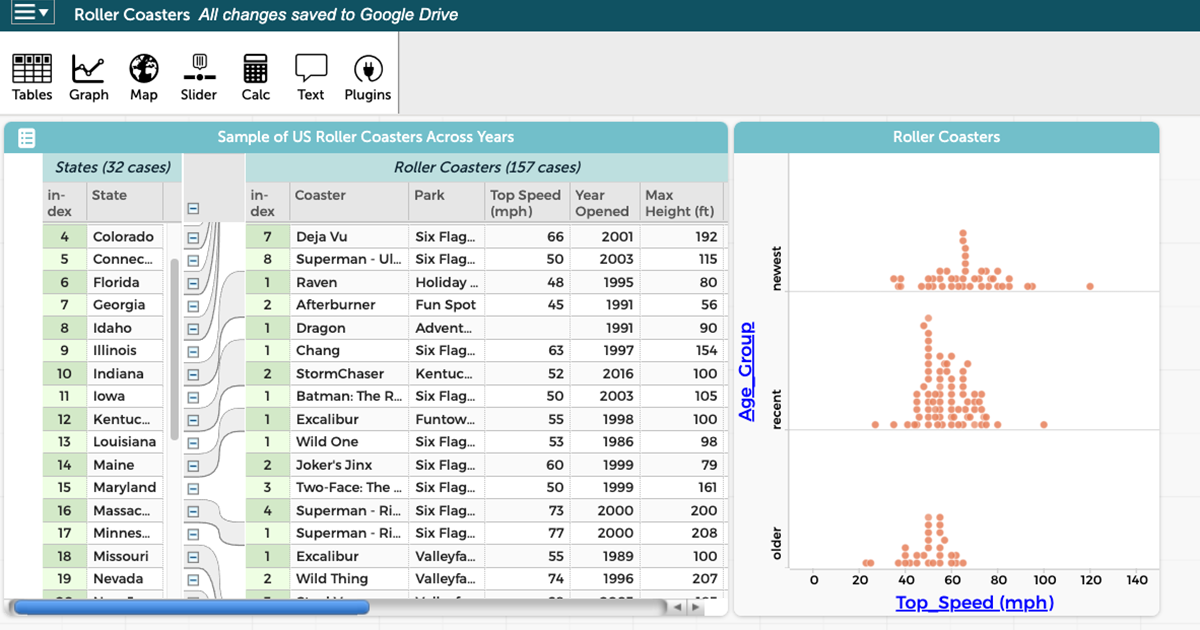Ask Hollylynne Lee and Gemma Mojica, the co-directors of the Hub for Research and Innovation in Statistics Education at the Friday Institute for Educational Innovation at NC State University, about their current goal for education and you’ll hear their very big plans: transform undergraduate teacher preparation in data science and statistics education. With the exponential rise in data—from personal data about health and consumer spending patterns to scientific data about climate change and the ongoing pandemic—it is critical to be able to understand and work with data to make decisions and participate in civic life. Widespread data science and statistics education is necessary to engage students in real-world issues using data.
Since 2016, Lee led the National Science Foundation-funded Enhancing Statistics Teacher Education with E-Modules (ESTEEM) project to develop an initial series of curriculum materials and implement intensive faculty professional learning for using the materials in teacher preparation programs across the U.S. Bill Finzer, lead developer of the Concord Consortium’s Common Online Data Analysis Platform (CODAP), Stephanie Casey, Professor of Secondary Education Mathematics at Eastern Michigan University, and Rick Hudson, Chair of the Mathematical Sciences Department at the University of Southern Indiana served as Co-Principal Investigators while Gemma Mojica was a lead Research Scholar on the project.
With Lee at the helm again, Mojica, Finzer, Casey, and Hudson are Co-PIs for a new $2.5 million award from NSF to extend this pivotal work to ensure that prospective teachers are comfortable and confident teaching data science.

CODAP document from a roller coaster data science activity developed by ESTEEM.
The ESTEEM project (2016-2022) developed three free curriculum modules based on CODAP, which were used in courses for pre-service middle and high school mathematics teachers across the country. The follow-on Enhancing Data Science and Statistics Teacher Education project will develop and disseminate additional high-quality data science and statistics teacher education curriculum resources and extensive faculty learning opportunities to reach a broad and diverse teacher education audience. A key to this success will be a larger community of researchers and projects that will also contribute to a large library of curated materials and extensive professional learning for faculty.
Finzer says, “This pioneering project is set up to have long-term impact on the emerging field of data science education by providing and widely disseminating an outstanding model and online materials for pre-service teacher education. I’m excited to work with this team again, focusing on how to further improve CODAP as a tool for engaging teachers and students with data.”
The new project is starting by studying the current state of undergraduate teacher preparation for data science and statistics to identify problems in teacher education programs. The project will then build a teacher education networked improvement community through partnerships with national organizations.
The ESTEEM team knows that it will truly take a village to make such a transformative shift in teacher preparation experiences. They have already established partnerships with the National Council of Teachers of Mathematics, the Association of Mathematics Teacher Educators, the American Statistical Association, and the Data Science 4 Everyone coalition. The project also plans to work with faculty communities through the Mathematics Teacher Education Partnership and the Consortium for the Advancement of Undergraduate Statistics Education and to bring together researchers and curriculum developers in K-12 and undergraduate statistics and data science education.
According to Finzer, “This visionary project will help more teachers and students experience the joy and power of data investigations firsthand.”